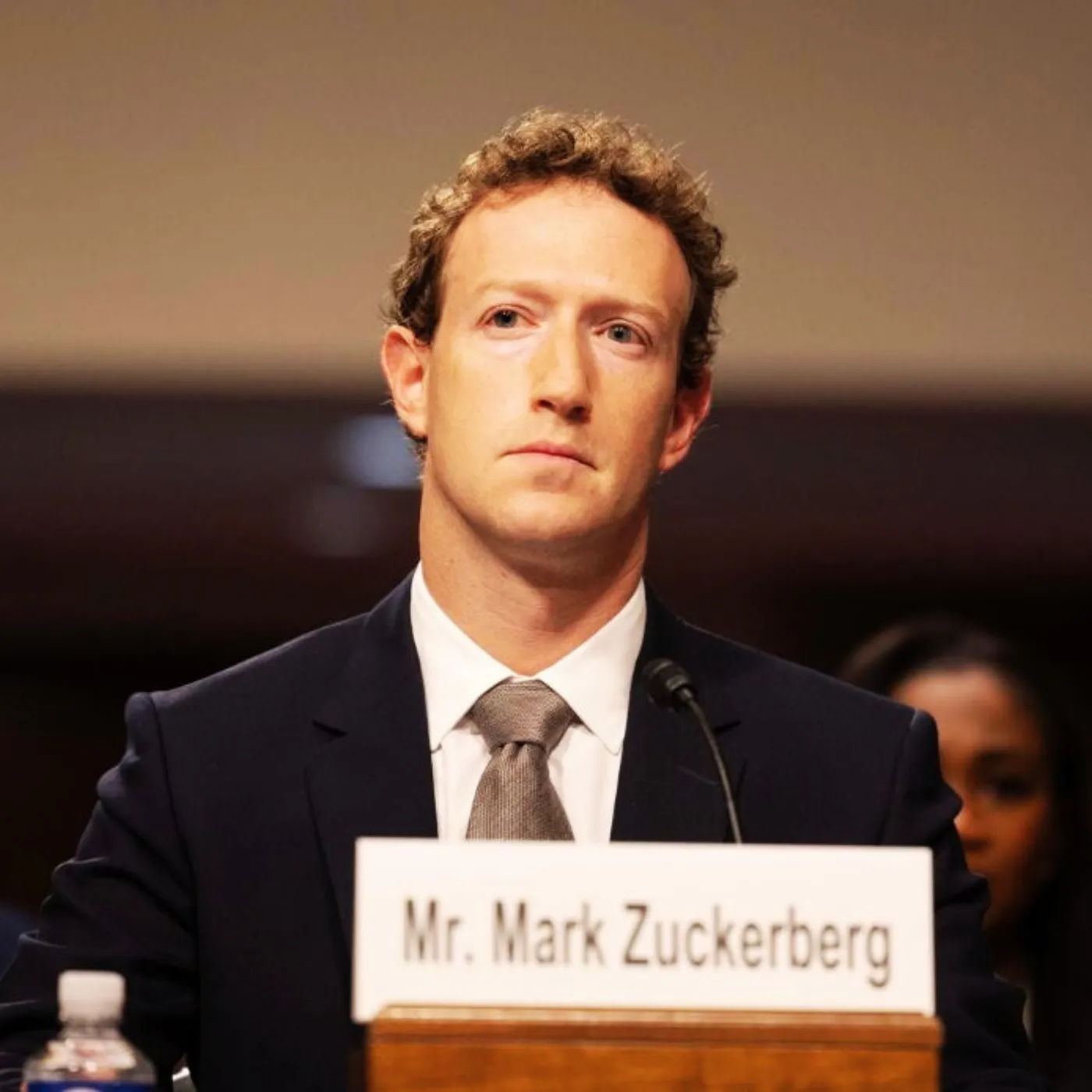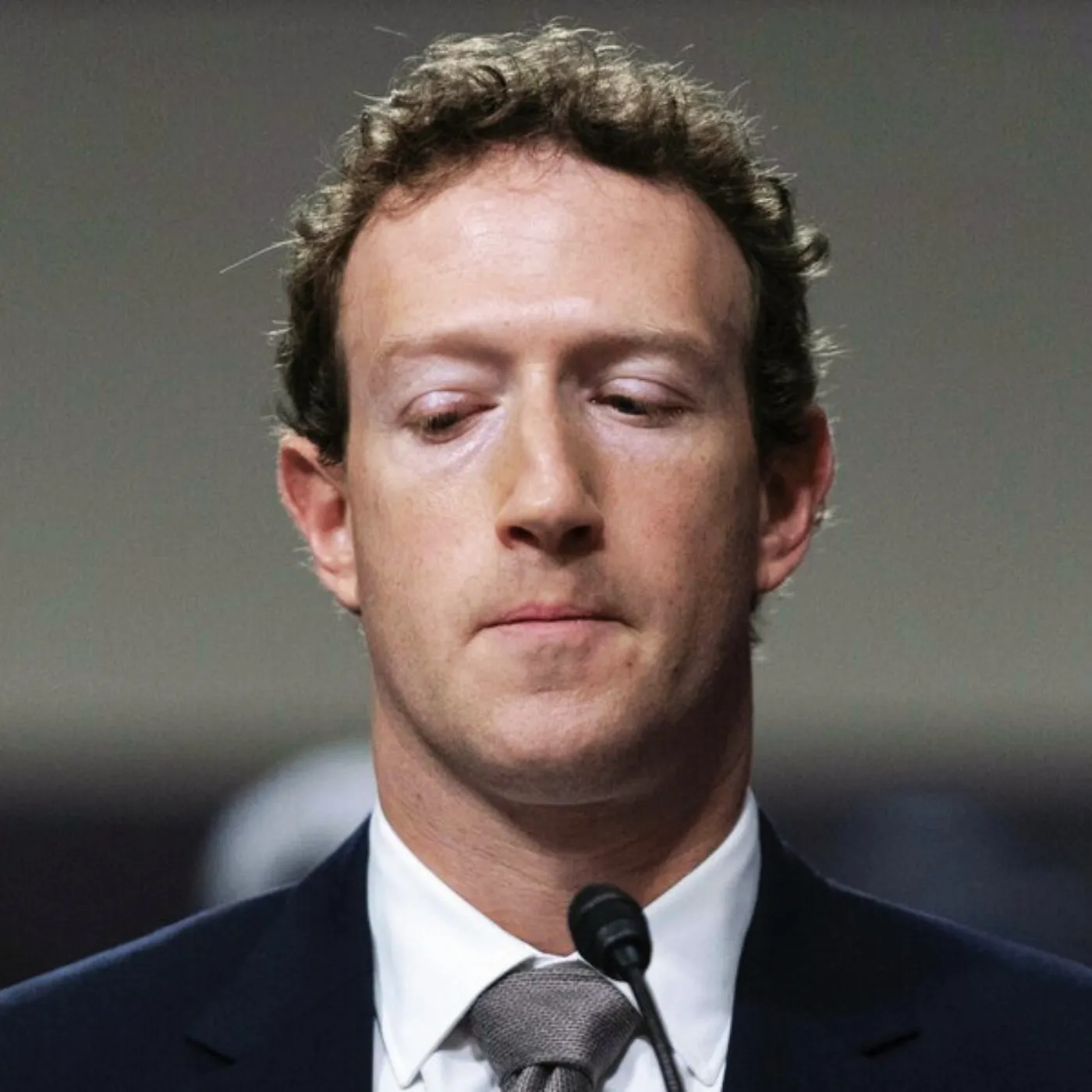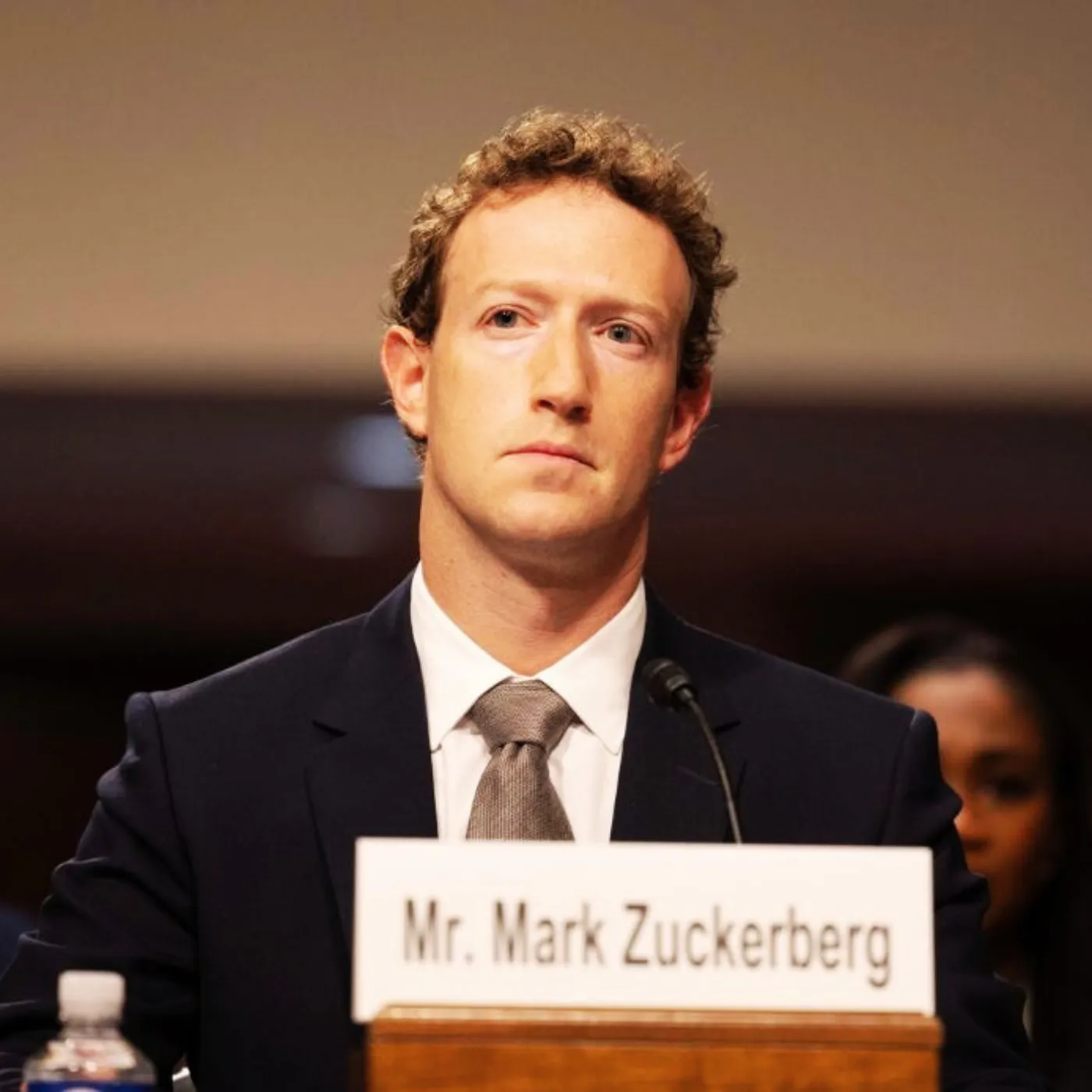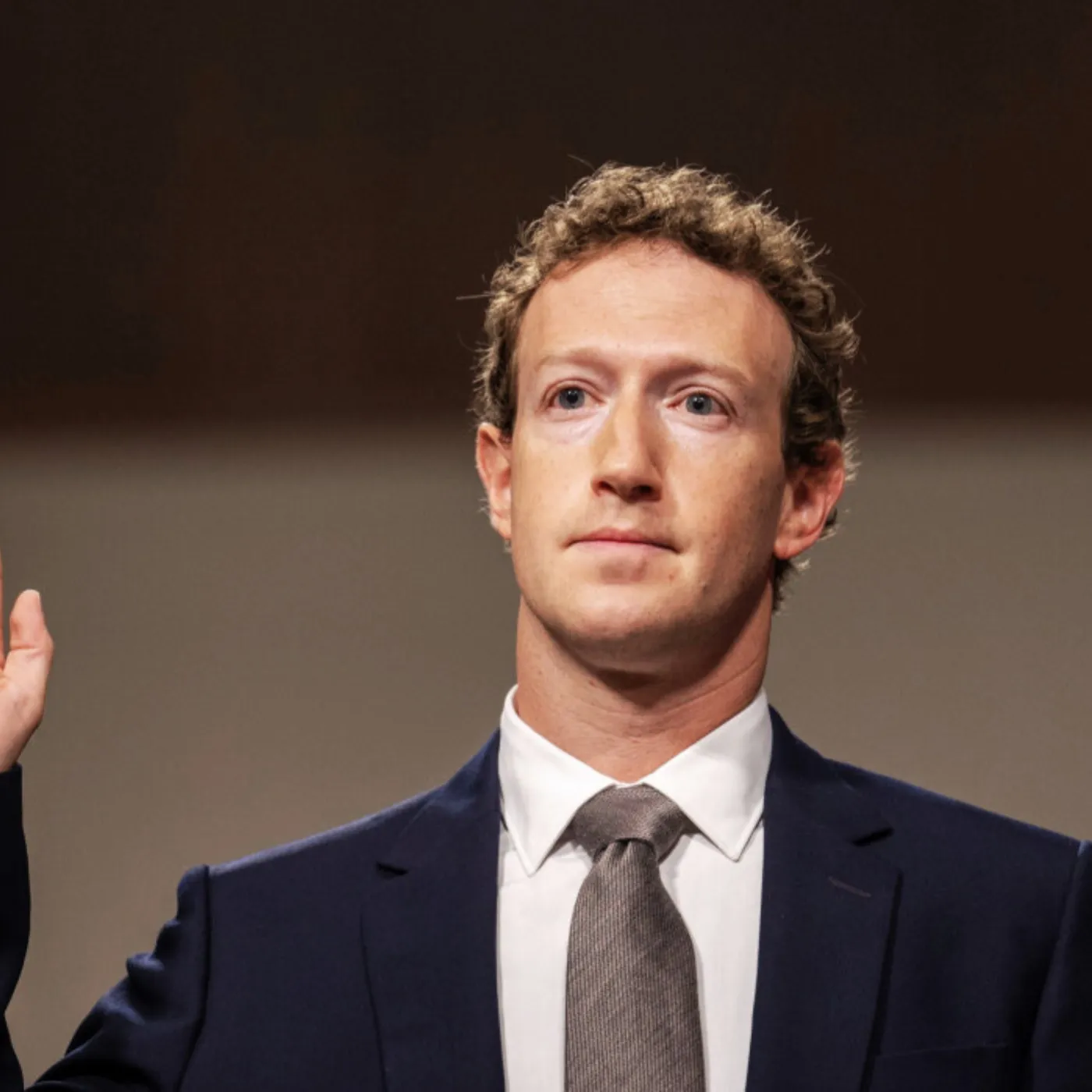

Meta on Trial, and the Hairline Fractures in Mark Zuckerberg’s Throne
In the courtroom, the stakes are higher than ever for Mark Zuckerberg. As Meta’s CEO, Zuckerberg has built one of the most dominant digital empires in history, acquiring major platforms like Instagram and WhatsApp along the way. But now, with the weight of an antitrust trial bearing down on him, the man who once reigned as the king of Silicon Valley is facing unprecedented scrutiny. This trial could change the course of Meta’s future and shake Zuckerberg’s unchallenged hold on the digital world.

The Big Question: Can Zuckerberg Defend His Acquisitions?
The first day of the trial set the tone for what promises to be a battle that could reshape the tech landscape. On trial are two of the most powerful social media platforms in the world: Instagram and WhatsApp. The question on everyone’s lips is whether Zuckerberg can defend his company’s acquisitions, which have raised alarm bells for regulators and competitors alike. As Zuckerberg steps into the hot seat, he’s tasked with proving that these moves weren’t anti-competitive but necessary for Meta’s long-term growth.
What Is the Antitrust Trial About?
At its core, the trial revolves around accusations that Meta’s acquisitions of Instagram and WhatsApp have stifled competition. The Federal Trade Commission (FTC) has taken the position that Zuckerberg’s company used its immense power to buy out potential rivals, ultimately creating a monopoly. In essence, Meta is accused of eliminating any competitive threat by buying up emerging companies. While Facebook (now Meta) initially found success through organic growth, its acquisitions have raised concerns over the way competition has been stifled.
The trial is set to probe whether Meta’s strategy violated antitrust laws, which are designed to prevent monopolies and foster healthy competition. The outcome of this trial could have far-reaching implications not just for Zuckerberg and Meta, but for the entire tech industry.
Zuckerberg’s Defense: The Rise of Meta’s Dominance
Zuckerberg’s defense is centered around one crucial argument: that acquiring Instagram and WhatsApp allowed Meta to evolve and innovate in ways that ultimately benefited users. He argues that Meta’s strategy was not aimed at eliminating competition but rather enhancing its capabilities in a fast-evolving digital world. By acquiring Instagram in 2012 and WhatsApp in 2014, Zuckerberg was securing the future of Meta in a space that was rapidly shifting.
Meta’s Transformation into a Digital Powerhouse
Meta’s journey from a simple social networking site to a tech giant with vast reach is nothing short of remarkable. Meta’s acquisition of Instagram and WhatsApp was part of Zuckerberg’s bigger vision to dominate the social media landscape. While Facebook continues to be the go-to platform for connecting with friends and family, Instagram has become a cultural phenomenon, driving trends in fashion, beauty, and lifestyle. WhatsApp, meanwhile, has become a vital communication tool for billions of people worldwide.
The Dark Side of Meta’s Strategy
While Zuckerberg’s vision may have been forward-thinking, there’s another side to the story. Critics argue that Meta’s strategy of buying up competition has led to an unhealthy concentration of power in the tech world. By acquiring Instagram and WhatsApp, Meta essentially controlled not only the social media landscape but also vast amounts of personal data from users. This raises serious concerns about privacy, market fairness, and consumer choice. In this trial, Meta will have to answer for how its acquisitions have impacted consumers and whether they’ve stifled innovation in the digital space.
The Growing Call for Regulation in Tech
Zuckerberg’s trial is not occurring in a vacuum. The tech industry has been facing mounting pressure from regulators around the world to curb the power of major players like Meta, Google, and Amazon. The rise of big tech has led to an erosion of traditional markets and raised alarms about the growing influence these companies have over our lives. Meta’s massive influence over the flow of information, advertising, and even the way we communicate has raised concerns about how much power one company should wield.
As Meta faces off in court, it will have to contend with increasing calls for regulation of the tech industry. Antitrust trials like this one are just the beginning of a broader conversation about how much control a single company can have over entire industries.

The Trial Could Be a Turning Point for the Tech Industry
The outcome of this trial could signal a dramatic shift in the tech world. If Zuckerberg’s defense holds up, Meta will be able to continue with its aggressive expansion strategy, potentially acquiring even more competitors in the future. On the other hand, if the court rules in favor of the FTC, Meta could be forced to divest Instagram and WhatsApp, breaking up the empire that Zuckerberg has so carefully built. This could be a major blow to Meta’s business model, which has relied on integrating its acquisitions into a cohesive platform.
The Fallout from This Trial Could Be Unprecedented
The implications of this trial go beyond just Meta. If Zuckerberg and his company are forced to sell Instagram and WhatsApp, it could open the door for other major players like Google, Amazon, and Apple to face similar scrutiny. It could also serve as a warning to tech companies about the risks of growing too quickly and acquiring too much power. The fallout from this trial could lead to sweeping changes in how big tech operates, forcing companies to rethink their expansion strategies and be more transparent about their acquisitions.
The Pressure on Zuckerberg: Can He Survive This Crisis?
For Mark Zuckerberg, this trial represents one of the greatest challenges of his career. Over the years, Zuckerberg has faced his fair share of criticism, from issues surrounding privacy violations to questions about Facebook’s role in spreading misinformation. However, this trial represents something much bigger: the potential collapse of his empire. If Meta is forced to divest its most profitable acquisitions, Zuckerberg’s position as the tech world’s dominant force could be severely weakened.
The courtroom drama is far from over, and Zuckerberg’s defense will be put to the test in the coming weeks. As the trial unfolds, the tech world will be watching closely to see how it plays out—and whether Zuckerberg can navigate this crisis without losing his grip on Meta.
The Broader Impact on Social Media Users
At the heart of this trial are the millions of people who rely on Meta’s platforms for communication, entertainment, and business. If Meta is forced to sell off Instagram and WhatsApp, it could fundamentally change the user experience on these platforms. The breakup of Meta could lead to fragmentation in the social media world, with users potentially being forced to choose between competing platforms. This could also impact advertisers who rely on the massive reach of Meta’s platforms to connect with customers.
Will Zuckerberg’s Legacy Be Defined by This Trial?
In many ways, Mark Zuckerberg’s legacy as the CEO of Meta will be shaped by the outcome of this trial. Will he go down in history as a visionary who built the largest social media empire the world has ever seen? Or will he be remembered as a leader who let his ambition cloud his judgment, leading to the downfall of Meta? The trial is a turning point for Zuckerberg and could have a lasting impact on how tech companies are regulated in the future.
The Future of Meta: Will It Thrive or Fall?
The outcome of this antitrust trial will have far-reaching consequences not only for Meta but for the entire tech industry. If Zuckerberg wins the case, Meta’s growth will likely continue, with more acquisitions and innovations on the horizon. However, if the court sides with the FTC, Meta could be forced to pivot in a dramatic way, altering its business model and potentially reshaping the digital world as we know it.
As the trial unfolds, one thing is certain: Mark Zuckerberg is no longer untouchable. The world is watching closely, and the future of Meta is hanging in the balance.

A Tech Empire at a Crossroads
Mark Zuckerberg’s trial is more than just a legal battle. It’s a reflection of the growing tension between big tech and regulators who are pushing for change. Whether or not Meta is forced to sell Instagram and WhatsApp, the trial will set a precedent for how tech companies operate in the future. The pressure is on Zuckerberg to defend not just his company’s acquisitions, but also his legacy as one of the most influential figures in tech. The next few weeks will determine if Zuckerberg can preserve his empire—or if this trial marks the beginning of the end of his reign.


















